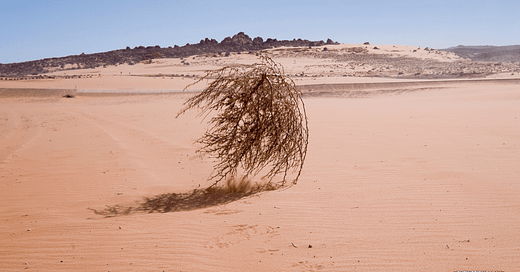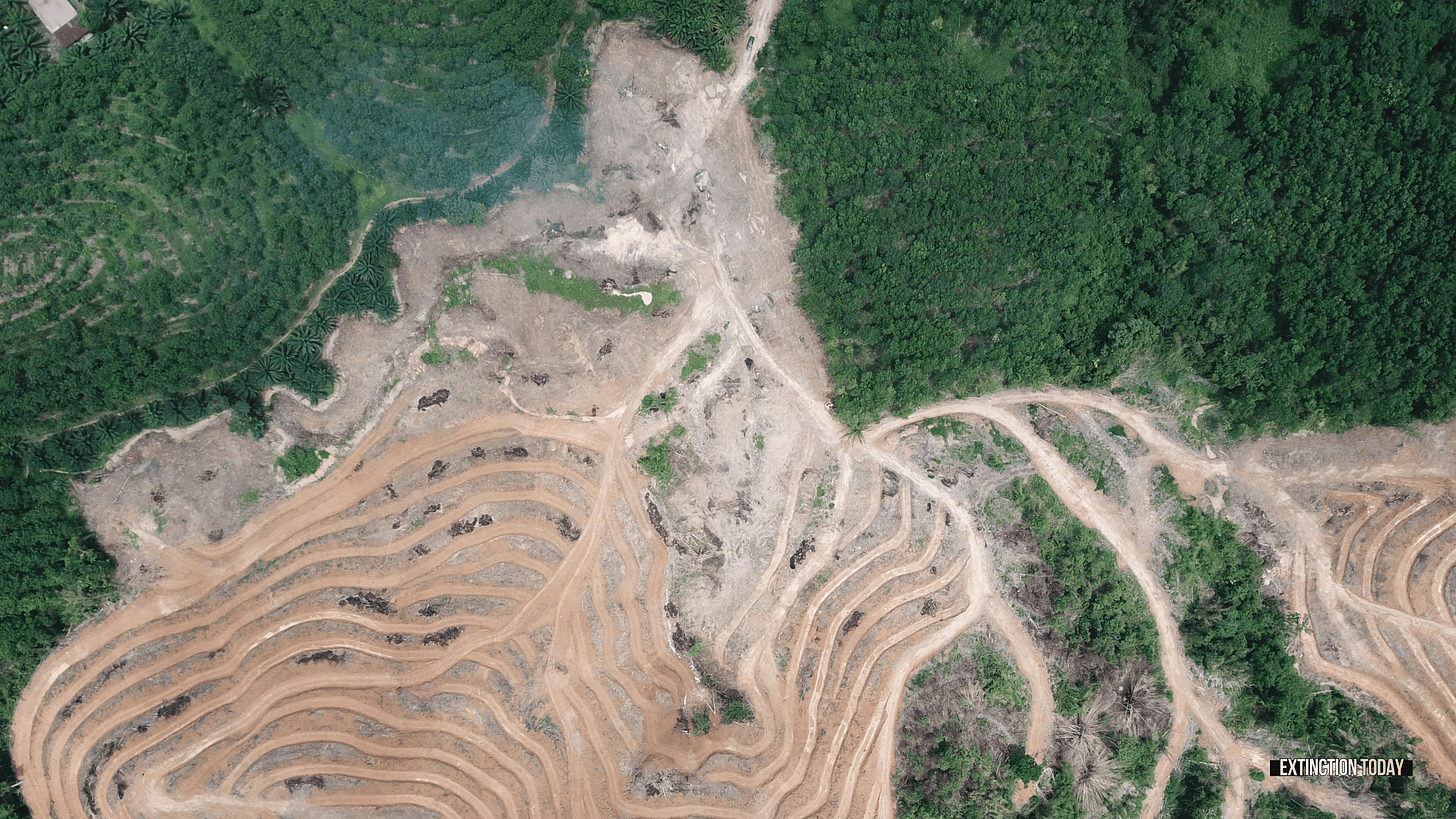Climate, Net Zero and Other Words You Must Stop Using
Our Crisis Messaging Must Be Simplified

If we want more people to connect with crucial news about the climate and nature emergencies, we have to stop over-complicating the message. In pretty much everything we say…
Have you ever considered the words we use on a daily basis in an attempt to wake people up? We are causing them to hit the snooze button for longer.
As a journalist, one of my tasks is to translate difficult concepts into words and phrases that anyone on the street could understand.
Yet the media is complicit in bamboozling its audience with terms which leave most people none the wiser about how important they are.
I’ve written a list below of common environmental terms, and suggested alternatives. Some may surprise you - for example, even the word ‘climate’ is included as being too complex.
But remember that most people are fairly simple folk, most haven't got science degrees, most will use shorter words in place of longer alternatives.
To effectively communicate a message, we have to speak in the language and tone of those we are aiming at. Not the language of scientists and politicians.
Don’t presume that people will know what you're talking about!
The Hit List
Environment
A word that encompasses so much, it’s difficult to develop a personal connection with it. Try natural world, or even our surroundings.
Climate
We’ve had fun with this one, haven’t we? When the leaders of the world confuse climate with weather, it must mean it is difficult to understand - or perhaps, the word is purposely being skewed to send a biased message of misinformation to an uneducated base of followers. Perhaps…
So why don’t we actually talk more about the weather? When it comes to climate change in particular, explain more about a dangerous increase in extreme weather.
You’re no doubt as tired as I am of record-breaking snowfall met with the ridiculous reaction of ‘where’s that global warming, then?’ Extreme weather needs to be amplified in our messaging - it is happening now, not just in the future, and is seriously affecting millions of lives.
Just look at wildfires, flooding, drought… keep the messaging on a personal level.
Most modern cars have climate control, which allows drivers to push a button and make the climate just right. The word just isn’t associated with an emergency for many people.
Other effects of climate change need to be communicated with more urgency. Rising sea levels should not centre on 2100 or polar bears; rather, look at the hundreds of thousands of homes already lost on low-lying islands.
Global Warming needs to be explained better, too, perhaps describing how a warmer atmosphere holds more water vapour, leading to increasingly heavy rainfalls and flash flooding.
Biodiversity
Communicating the importance of the biodiversity crisis and its link with the climate crisis is crucial, but again, it’s an all-encompassing term that is difficult for a lot of people to understand.
Try using terms like all life on Earth, and the wide variety of plants and animals.
Sustainability
The buzzword which has seen increasing prominence in recent years, yet can be a difficult concept for mass audiences to understand.
Try talking about living in a way that protects our natural resources and living within our means for a better future.
Carbon Footprint
This has never been an easy one to measure, quantify or explain, and is by now associated with too much negative messaging about personal vs corporate and government responsibility.
Just talk about our impact on the planet instead.
Greenhouse Gases
Many of us can understand the reason for using the word ‘greenhouse’, but maybe explain more often that carbon dioxide, methane and nitrous oxide are heat-trapping gases - using more of them traps heat in the atmosphere.
Fossil Fuels
This term should be largely understood, but don’t shy away from writing or saying coal, oil and gas - the fact that they are formed from ancient organic matter is not really relevant.
Renewable Energy
We’ve come up with another great term there, haven’t we?…. Renewable energy is a difficult concept for many to grasp - instead perhaps call them endless energy sources.
Net Zero
As this term is all over politics, many people don’t trust it, never mind understand it. And a lot of politicians don’t seem to understand it, either.
Talk about achieving a balance between the amount of heat-trapping gases emitted and those removed from the atmosphere, or balancing emissions to zero. ‘Net’ is the word that confuses a lot of people.
Deforestation
Again, this should be largely understood, but it’s a word that removes the horror. Let’s communicate more about cutting down forests - for animal farming, logging, or development.
Desertification
Another word which has all serious consequences removed. It actually sounds quite appealing…
We’re talking here about turning land into desert, due to human-caused climate change.
Habitat Loss
‘Habitat’ is such a dull word, devoid of emotion. This is all about animals losing their homes and the destruction of the natural world, killing off species.
Rewilding
A nicer word, and perhaps more easily understood, but let’s move away from all the media scare stories of wolves being introduced into every community in the world, and focus on bringing back nature.
Circular Economy
For the green movement, an economic model based on reducing waste and reusing resources is central to achieving transformative success.
It’s not a sexy term though - just talk about the importance of recycling and reusing everything.
Biodegradable
Another scientific word that is becoming more understood, but still requires explaining to most people.
Let them know the product or material in question breaks down naturally, decomposing without leaving any trace of plastics etc and therefore not causing any lasting harm.
Coral Bleaching
This sounds like it might be bad news for coral…. It is, of course. Spell it out, these are dying coral reefs, most often due to warming waters.
Desalination
The world desperately needs to scale up the removal of salt from seawater to make it drinkable, without using vast amounts of energy to do so.
Desalination is the process but should not be spoken of without reference to the fact that making seawater drinkable improves the chances of saving lives.
Carbon Sequestration
Carbon capture is pretty easy to understand, but carbon sequestration? It’s unnecessary to use such a long word to explain storing carbon underground.
Bioplastics
Another scientific term that, to the untrained mind, sounds like a form of regular, oil-based plastic. Of course, we are talking here about plastics made from plants.
Just Transition
Who came up with this one?! It’s a fair shift to green jobs, ensuring good outcomes for workers and communities.
Sustainable Fashion
The word ‘fashion’ is associated with high-end clothing, and thus not applicable to the masses. The word ‘sustainable’ is often misunderstood.
So we could talk about eco-friendly clothing, but that doesn’t really go into enough detail.
I know a thing or two about this from having my own ethical t-shirt range, and one of the main drivers of buying such clothes is that they are plastic-free - so always make that clear where relevant.
A lot of ‘sustainable fashion’ contains recycled plastic (polyester and the like), but that is still plastic. It doesn’t belong in clothing which is regularly washed, shedding microplastics into our waterways..
To sum it up…
Keep the messaging simple. That’s half the battle in helping people understand the problems we face, and encouraging them to take action.
Extinction Today is a reader-supported publication. To receive new posts and support my work, please consider becoming a free or paid subscriber. Thank you.











Besides using some of these words when communicating to other people, some of them feel so diluted now, when every company and their aunt are using them. Sustainability is so wrongly overused, it has lost all its meaning.
I’m a big believer in plain language but had never really stopped to think about how many sustainability related terms we use that few people really understand. Thanks for inspiring me to do better!